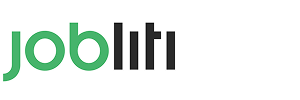The Ultimate Guide to Career-Match Quizzes That Actually Help

Find Your Dream Job With Quiz
Start the TestWhat a Career-Match Quiz Really Measures
Modern career-matching tools do much more than spit out a generic list of occupations. Thoughtfully designed assessments explore your work values, problem-solving style, motivation triggers, and environmental preferences. The goal is to decode how you like to operate day-to-day, not just what you studied or where you worked. That means surfacing preferences around autonomy, collaboration, pacing, ambiguity tolerance, and creativity, then aligning those patterns with roles where such traits are rewarded rather than stifled.
The best experiences feel conversational, yet they use sturdy psychometric principles under the hood. In practice, tools like the find my job quiz translate your interests and behaviors into a coherent profile that maps to real job families. You’ll see narratives that make sense, examples that match your energy, and next steps that feel practical instead of overwhelming. The output becomes a compass for exploration, helping you narrow fields, prioritize informational interviews, and structure skill-building in a targeted way.
- Discover your dominant work drivers without guesswork.
- Spot misalignment between current tasks and natural strengths.
- Use evidence-based guidance to filter roles faster.
Crucially, a well-built assessment avoids forcing you into a personality box. Good instruments acknowledge situational nuance and emphasize context: your best-fit environment depends on team dynamics, manager style, and organizational stage. By blending trait indicators with work scenarios, you get a nuanced snapshot that helps you make confident, low-regret decisions about where to invest your time next.
Benefits You Can Expect, Backed By Research and Experience
Reliable assessment frameworks help you reduce career noise and increase signal. Instead of scanning thousands of job postings, you focus on a small, high-probability subset where your strengths translate into measurable results. This saves hours each week and prevents burnout. A clearer target also improves your resume and portfolio, because you can showcase achievements that speak directly to the decision criteria used in the roles you want.
Cost shouldn’t be a barrier to clarity, and a thoughtfully designed find your job quiz free option can still deliver actionable insights when it is built on validated constructs. Beyond convenience, the real payoff arrives in the clarity-to-action bridge: you’ll turn raw results into smarter conversations with mentors, concise outreach messages, and interview stories that tie your behaviors to business outcomes. With better direction, you choose the right courses to upskill, avoid credential clutter, and build a focused pipeline of opportunities.
- Sharper targeting raises response rates on outreach.
- Aligned roles improve ramp-up speed and job satisfaction.
- Stronger fit reduces costly job-hopping and sunk time.
There’s also a motivational dividend. When your path feels coherent, your effort compounds. You practice the right things, build relevant artifacts, and say no to mismatches quickly. Over a few weeks, that compounding focus outperforms scattershot applications, and it accelerates both interviews and offers.
From Results to Action: Reading Your Profile With Precision
Most assessments present clusters such as problem-solving style, collaboration preference, risk posture, and environment fit. Each cluster points to tasks where you can produce value consistently. To compare role families efficiently, you might try a job finder quiz free that benchmarks your profile against multiple industries using the same scoring rubric, which makes side-by-side evaluation far easier.
| Signal from your results | What it likely means | High-yield actions | Resume/portfolio focus |
|---|---|---|---|
| Analytical depth is dominant | You thrive on complexity and structured problem-solving | Pursue roles with clear metrics and deep research components | Case studies with data, models, and measurable outcomes |
| Creative ideation leads | You excel at generating concepts and brand narratives | Target roles emphasizing experimentation and storytelling | Before-and-after visuals, prototypes, and campaign results |
| People-centric collaboration | You energize teams and manage stakeholder dynamics well | Focus on client-facing, facilitation, and coordination roles | Cross-functional wins, onboarding guides, and playbooks |
| Bias for action | You prefer fast cycles and iterative delivery | Join teams with agile practices and shipping cadence | Rapid launches, sprints, and iteration metrics |
| Structure-seeking | You do your best work with defined processes | Choose organizations with mature systems and documentation | Process improvements, SOPs, and quality benchmarks |
Beyond labels, the narrative is what matters: your results should read like a workstyle storyboard that clarifies how you deliver value. Deeper prompts that explore pacing, autonomy, and collaboration act as a job quiz help find job that best fits me by illuminating where motivation and competence intersect in daily tasks rather than relying on broad archetypes.
- Translate each signal into tasks, not titles.
- Draft outreach that cites your top two strengths with proof.
- Run small experiments to validate fit before you commit.
Treat the profile as a living document. As you try new projects, revisit your conclusions, adjust role hypotheses, and refine how you describe your edge. Iteration keeps you honest and future-proof.
Testing Smarter: Tips to Improve Accuracy and Outcomes
Accuracy starts before you click begin. Take the assessment when you’re rested, undistracted, and not rushing. Answer based on typical behavior, not idealized versions of yourself. If a question stumps you, think about concrete moments in past projects and how you actually responded. That mental replay yields more reliable signals than hypothetical what-ifs.
If you want a lightweight checkpoint before networking or applications, consider a compact find my dream job quiz free as a warmup and then graduate to a deeper diagnostic for nuance. People focused on strengths alignment often favor a nuanced find my perfect job quiz because it translates energy patterns into repeatable tasks, which makes it easier to vet roles objectively and decline mismatches without guilt.
- Schedule the quiz like an interview: quiet space, clear mind.
- Use consistent context: answer as your current professional self.
- Compare results with a mentor for external validation.
- Re-test quarterly to track growth and evolving interests.
Finally, close the loop by stress-testing your insights in the real world. Volunteer for a small project, prototype a service, or shadow someone in your target field. Live feedback will either reinforce your direction or illuminate a better lane to explore.
Turning Insights Into a Career Strategy You Can Execute
Clarity is only valuable if it changes your behavior. Translate your top signals into a short list of role families, then prioritize three concrete bets for the next month. Build a portfolio piece for each bet, reach out to practitioners for 20-minute conversations, and tailor your resume to the decision criteria of those roles. Momentum compounds when you operate from a focused playbook.
For budget-conscious explorers, a reliable find my perfect job quiz free supports rapid iteration while you refine hypotheses and target companies. Career changers mapping transferable skills sometimes start with a targeted find new job quiz to identify adjacent roles where existing strengths already apply, which shortens ramp-up time and increases interview win rates.
- Create a weekly cadence: 2 conversations, 1 project iteration, 5 tailored applications.
- Track a few key metrics: reply rate, interview-to-offer ratio, portfolio views.
- Retire tactics that underperform after two cycles and double down on winners.
Keep a learning ledger as you go. Capture what resonates with hiring managers, which bullets earn follow-up questions, and where your stories land strongest. Over a few weeks, your narrative sharpens, your assets improve, and your focus turns into offers.
FAQ: Common Questions About Career-Match Quizzes
How accurate are these quizzes?
Accuracy depends on instrument quality, your honesty, and test conditions. Well-validated tools can narrow options effectively when supported by reflection and real-world experiments. After the first results, many users validate insights with a complementary find out your job quiz to cross-check consistency and reduce bias before committing to a path.
How should I use the results day-to-day?
Treat your profile as a roadmap for action. Convert strengths into weekly goals, choose projects that emphasize those strengths, and practice telling concise stories that link your behaviors to business impact. Use the language of your profile in resumes, portfolios, and outreach so hiring teams immediately see the fit.
Can a quiz help with career changes?
Yes, especially when you’re shifting industries or functions. The assessment highlights portable strengths and translates them into tasks used in your target roles. Pair the insights with targeted upskilling and micro-internships to demonstrate capability fast and reduce perceived risk for employers.
What if my results don’t match my current job?
Misalignment is useful data, not a verdict. You can redesign parts of your current role, volunteer for projects that fit better, or begin a structured transition. Start with low-risk experiments and informational interviews to test new directions without burning bridges.
How often should I retake a quiz?
Reassess quarterly or after significant milestones such as a major project, a new certification, or a job change. Frequent check-ins capture evolving interests and prevent you from locking into an outdated self-concept. Keep notes so you can track patterns across iterations and make better long-term decisions.
